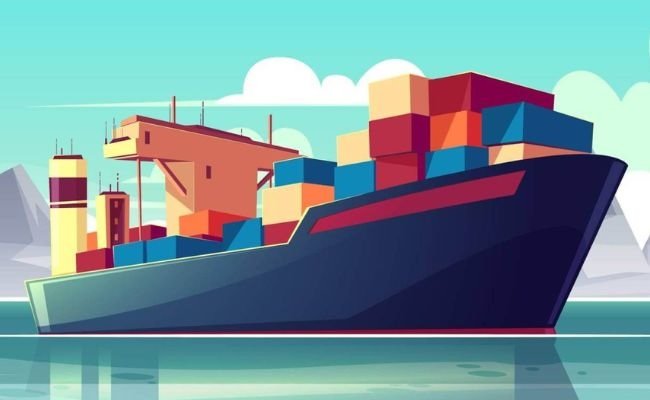For businesses, marine insurance offer vital protection against losses or damages during the transit of goods. However, not all claims are approved, and many businesses face unexpected rejections. Understanding why a claim gets denied can help importers, exporters and logistics providers avoid costly mistakes. From improper documentation to policy exclusions, even minor oversights can lead to serious financial setbacks.
This article explores the common reasons behind marine cargo insurance claim rejections and how you can steer clear of them.
When Your Marine Cargo Insurance Claim Can Be Rejected – 5 Common Reasons
As understood, cargo insurance is a safety net for businesses involved in shipping goods across seas. However, that safety net comes with certain conditions. If not met, your claim could be denied, leaving you to bear the losses. Here are five common reasons why marine insurance claims often get rejected:
- Insufficient Packaging
One of the top reasons for claim rejection is poor packaging, especially for perishable goods. During sea transit, goods undergo extensive handling and are exposed to various environmental conditions. If the cargo is not packed securely or does not meet packaging standards, any resulting damage may not be covered.
Insurers expect the shipper to take all necessary precautions to protect the goods. When damage is traced back to weak or inadequate packaging, the claim is likely to be turned down. Investing in proper packaging can significantly increase your chances of a successful claim.
- Errors in Filing the Claim
Even if you have a valid reason to file a claim, small mistakes in the paperwork can result in its rejection. Common errors include filing under the wrong policy, missing key documents, providing incorrect details or not meeting the submission deadlines.
Insurance claims are time-sensitive, and delays can work against you. A professional can help ensure that everything is in order and filed correctly within the given time frame.
- Mishandling of Goods
Marine cargo insurance covers many external risks but not negligence. If damage occurs due to careless handling or internal errors—such as rough loading, improper stacking or incorrect storage—your claim may not hold up. This is particularly important when dealing with fragile or high-value items.
Insurance companies look into how the goods were managed before and during transit. Make sure your team is trained and follows best practices to handle cargo properly. A little extra care can prevent damage and protect your claim.
- Perishable Goods
Shipping perishable goods brings its own set of challenges. Most marine insurance policies do not cover losses due to delays that result in spoilage. For example, if a shipment of fresh produce arrives late and is no longer usable, your standard policy might not cover that loss.
It is essential to clarify this with your insurer before shipping. If you regularly transport perishable items, consider purchasing additional coverage tailored to such goods to avoid unpleasant surprises later.
- Improper Insurance Policy
Sometimes, the problem lies in the policy itself. If your marine cargo insurance does not cover the specific type of cargo or the nature of loss, your claim will be rejected. Also, any change in cargo type or transit route that is not updated in the policy can invalidate it.
Review your insurance coverage regularly to ensure it reflects your current shipping activities. A well-matched and comprehensive policy is key to a hassle-free claim process.
Tips to Ensure Marine Insurance Claim Approval
- Pack Your Goods Properly: Use strong, secure and appropriate packaging based on the nature of your cargo. For perishable or fragile items, invest in extra protection and follow industry standards. Most claims are rejected due to poor packaging.
- Double-Check Your Policy Coverage: Know exactly what your policy covers—and what it does not. If you are shipping special goods like perishables or high-value items, make sure your insurance policy includes them. If not, opt for additional coverage.
- Document Everything: Keep clear records of the goods before and after shipping. Take photographs, maintain a cargo checklist and store copies of all shipping documents. This will help support your claim if anything goes wrong.
- File the Claim on Time: Every policy has a time limit for reporting losses. Delaying the claim process can lead to rejection, even if your case is genuine. File promptly and follow the proper procedure.
- Provide Accurate Information: Make sure all details—like quantity, value and nature of goods—are correct in your policy and claim. Any inconsistencies can raise red flags and hurt your case.
Securing Your Marine Cargo with TATA AIG
Marine cargo insurance is essential for protecting your goods during transit, but getting a claim approved requires attention to detail. From proper packaging to timely filing, every step matters. With TATA AIG, you get the support of a trusted insurer that offers comprehensive coverage tailored to your cargo needs. Their experienced claims team ensures a smooth and transparent process, helping you avoid common pitfalls.
Whether you are shipping perishables or high-value items, TATA AIG’s marine insurance plans give you the confidence to transport goods safely—knowing you are backed by reliable protection every step of the way.







